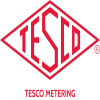Dive Brief:
- Enel subsidiary eMotorWerks and LO3 Energy have teamed up to explore connecting electric vehicle (EV) chargers with microgrids, in a partnership that will utilize both companies' technologies to optimize the use of renewable energy.
- The companies' first project will connect eMotorWerks' JuiceNet EV charging platform to one of LO3's transactive energy marketplaces, allowing local renewable energy to be traded between the microgrid and electric vehicle owner.
- As EVs become more common, energy companies are aligning to provide services. Enel, through its subsidiary EnerNOC, acquired eMotorWerks in 2017. LO3 Energy is developing about 50 transactive energy projects worldwide, including the Brooklyn Microgrid.
Dive Insight:
Widespread adoption of electric vehicles will bring both challenges and opportunities for utilities, and the ability to coordinate charging is one key to success.
So far, the industry has seen a mix of projects testing how resources may work together: charger-rooftop solar, charger-storage and charger-demand response projects. The eMotorWerks-LO3 collaboration is another step forward, and includes a series of charger+microgrid projects that the companies say will explore "high-value use cases for local energy markets."
The companies say they view the project as a key component of a "broad service portfolio for utilities," which will also give consumers more control over their energy use.
LO3 Energy CEO Lawrence Orsini said utilities should see EV charging as another option to "efficiently match local energy supply and demand," and the partnership with eMotorWerks could help to enable "more transactions among other microgrid participants and EV drivers."
LO3 and eMotorWerks say their program will be aimed at "price-responsive consumers with a flexible charging schedule who would like to leverage EV flexibility to save on their energy bills." Also targeted: EV fleet managers looking for predictable costs.
EV adoption has remained relatively low, but utilities are preparing for the impacts of more vehicles charging on their systems.
Bloomberg New Energy Finance believes EVs will represent 28% of global light-duty vehicle sales sometime shortly after 2025. And the Edison Electric Institute, which represents U.S. investor-owned utilities, projects 7 million of the zero-emissions vehicles will be on U.S. roads by 2025 — up from about 1 million today.
A recent analysis from Morningstar concluded electric vehicles will be one of three areas pushing electricity demand higher through 2030, along with cannabis cultivation and data centers. Morningstar expects demand from EVs to make up 1.7% of U.S. electricity demand by the end of the next decade.















